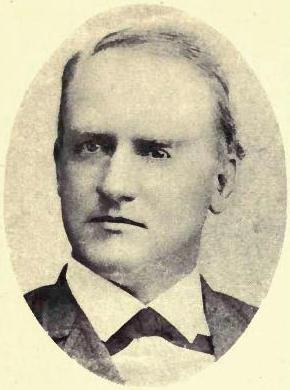Alexander Cheves Haskell facts for kids
Quick facts for kids
Alexander Cheves Haskell
|
|
|---|---|

A.C. Haskell as a law professor
|
|
| Associate justice | |
| In office 1877–1879 |
|
| Preceded by | Jonathan Jasper Wright |
| Succeeded by | Samuel McGowan |
| Personal details | |
| Born | September 22, 1839 Abbeville County, South Carolina |
| Died | April 13, 1910 (aged 70) |
| Spouses |
Rebecca Coles Singleton
(m. 1861; died 1862)Alice Van Yeveren Alexander
(m. 1872) |
| Alma mater | South Carolina College (now University of South Carolina) |
Alexander Cheves Haskell was an important figure in South Carolina history. He was a brave soldier during the American Civil War. Later, he became a key politician. He lived from 1839 to 1910.
Contents
Early Life and Education
Alexander Haskell was born in Abbeville County, South Carolina. He grew up in Columbia, South Carolina. He was a very smart student. He graduated near the top of his class from South Carolina College. This was just before the Civil War began.
Serving in the Civil War
Haskell eagerly joined the Confederate States Army. He became an important helper to General Maxcy Gregg. In 1861, he married Rebecca Coles Singleton. Sadly, she passed away in 1862 after their daughter was born.
Haskell's regiment, the First South Carolina, fought bravely. They were part of major battles in 1862. They helped stop six attacks from the Union Army at the Second Battle of Bull Run. In 1864, Haskell was promoted to Colonel. He then led the 7th South Carolina Cavalry.
Haskell was wounded four times during the war. He was injured at the battles of Fredericksburg, Chancellorsville, Cold Harbor, and Darbytown Road. At Darbytown Road, he was shot in the head. This caused him to lose sight in his left eye. Even so, he recovered and was able to join the final battles of the war.
General Robert E. Lee chose Haskell for an important task. Haskell was the one who officially surrendered the Confederate cavalry. This happened at Appomattox Court House National Historical Park on April 12, 1865.
Life After the War
After the war, in 1870, Haskell married Alice Van Yeveren Alexander.
Haskell became a lawyer in South Carolina. In 1876, he led the state's Democratic Party. He worked hard to unite the party. His efforts helped the Democrats win the governor's election in 1876. This was a time when the state was recovering from the war. Governor Wade Hampton III rewarded Haskell for his hard work. Haskell was appointed to the state supreme court in 1877. In the 1880s, he became the president of a railroad company.
Later, Haskell disagreed with another politician named Benjamin Tillman. Tillman was running for governor in 1890. Haskell felt Tillman was not a good leader. Haskell even tried to run against Tillman. However, many people in the state still voted for the official Democratic candidate. This was because they feared giving the other party a chance to win. So, Haskell's attempt to run against Tillman was not successful.
Alexander Haskell continued to work until his death. He was the vice president of a bank in Columbia. He passed away on April 13, 1910. He is buried in Elmwood Cemetery in Columbia.
Family Life
Alexander Haskell had one daughter from his first marriage to Rebecca Coles Singleton:
- Rebecca Singleton Haskell (born June 20, 1862)
He had ten children with his second wife, Alice Van Yeveren Alexander:
- Alexander Cheves Haskell, Jr. (born August 15, 1871)
- Louise Porter Haskell (born July 25, 1872)
- Mary Elizabeth Haskell (December 11, 1873 – October 9, 1964)
- Anthony Porter Haskell (born January 27, 1875)
- Marion Alexander Haskell (born June 5, 1876)
- Charles Thomson Haskell (born April 25, 1878)
- Frederika Christina Haskell (born December 10, 1880)
- Adam Leopold Haskell (born September 1, 1882)
- Alice Van Yeveren Haskell (born June 21, 1884)
- Suzanna Courtonne Haskell (born February 16, 1886)
Images for kids


